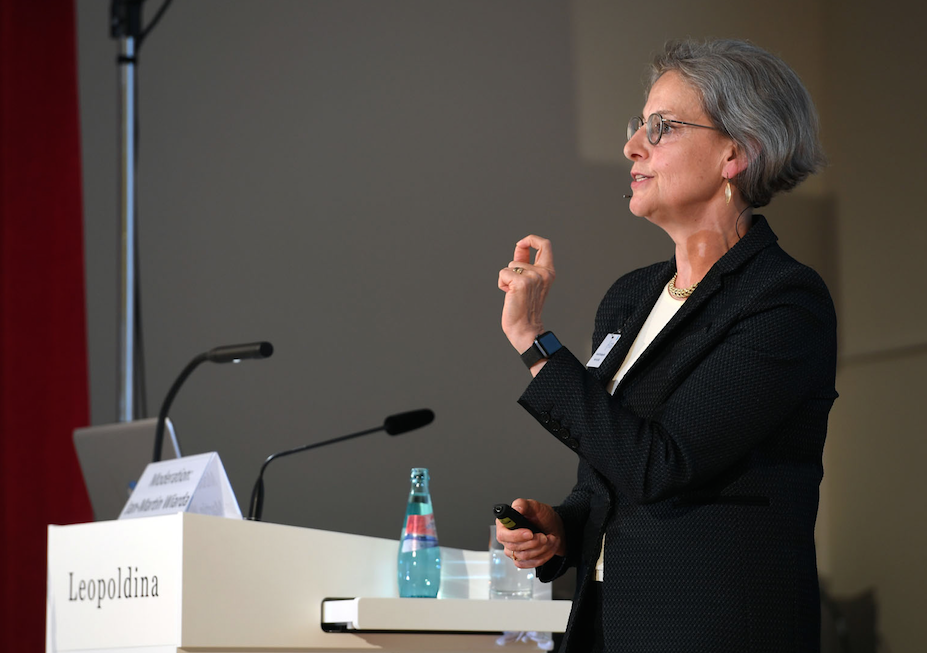In its role as German National Academy of Sciences, the Leopoldina has been advising politicians and society on key future issues for ten years. On 21st and 22nd September 2018, the Leopoldina Annual Assembly set to focus on science-based policy under the motto ‘Nature – Science – Society’. Ursula Staudinger spoke on ‘Demographic Change and Aging’ and illustrated the most important findings and recommendations on the topic. Over 80 scientists from 10 nations have worked on these recommendations.

The average life expectancy has increased by 30 years over the past 100 years. Important drivers leading to these ‘societies of longer lives’ are the economic development, public health systems, medical sciences and practices, the development of the educational systems and finally the development of working environments. Meanwhile, all nations are affected by this increase of average life expectancy.
The societal consequences of this demographic change are often presented solely as burden to modern welfare states by means of the ‘age load quotient’ – the relation of the population older than 65 to the population aged between 20 and 64. The societal focus on the chronological age, however, ignores the fact that the human species possesses the ability to change its own nature. For human development and aging are not determined rather they are created by a continuous interaction between biology, person and culture. Aging, also in its biological components, is modifiable through influences of society and individual within its biologically set limits.
The future viability of a society with an aging population, however, is largely dependent on its own will to change. Therefore, important steps are necessary to change outdated structures in the world of education, the labor market and national economies, in regions and communities, families, civil societies and politics, in the minds of people as well as in the practice of everyday life.